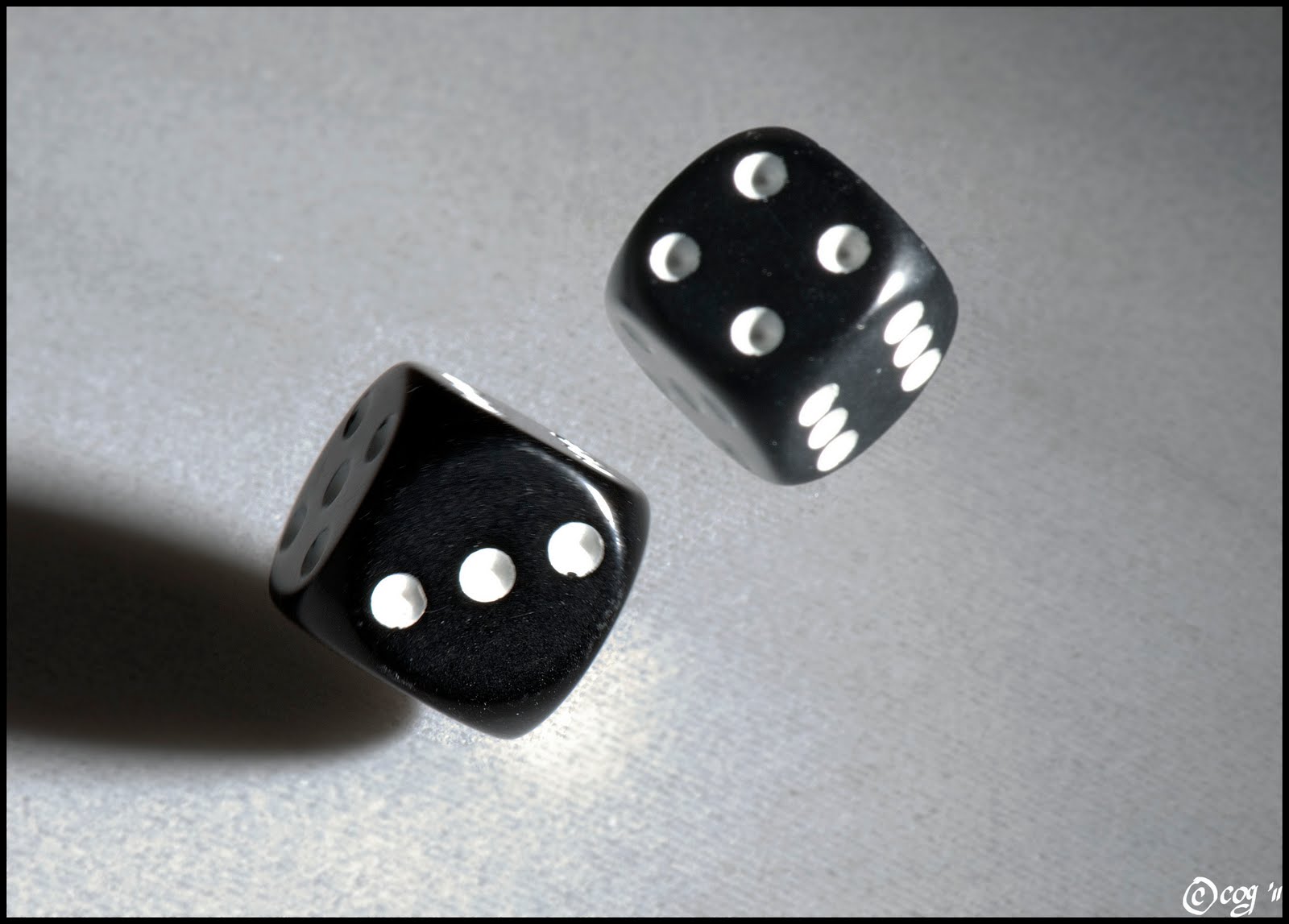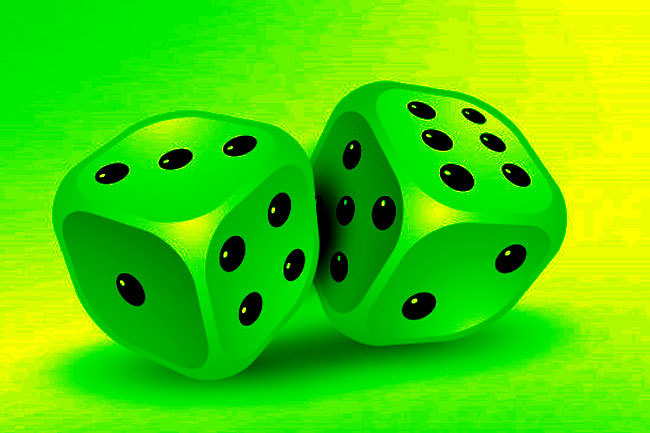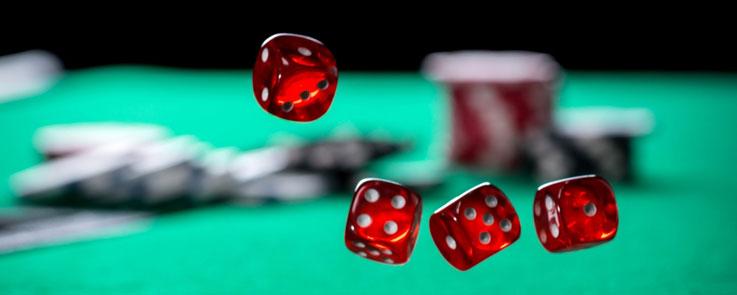How Do You Roll Dice In Craps
The Odds: Numbers
Since craps is a game of chance, you need to understand why you have a greater or lesser chance of rolling different numbers. Because you're rolling two dice, your chances of rolling a specific number in craps are determined by the number of die combinations that can add up to that number. For example, 2 can only be rolled with two 1s, but 4 can be rolled with either a 1 and a 3 or two 2s. That means you have twice the chance of rolling a 3 as you do a 2. Because the 7 has the greatest number of combinations (six), it is the number that has the potential to come up most often, which is why 7 is the magic number in craps.


There are 36 possible number combinations in craps. Here is a chart showing the possible combinations for each number using two die.
Advertisement
Unbalanced dice do not roll randomly. And casinos replace their dice often. Casino dice have machine-tooled straight edges. These edges eventually wear down, accumulating imperfections. Imperfections add bias to rolls. Casino dice are larger and straighter than board gaming dice because players must throw the dice so far on a craps table. About 20 minutes after dice were invented, fashioned from the ankle bones of hooved animals, somebody cheated using dice. The tradition of trying to swindle casinos continues to this day, so casinos take extraordinary measures to prevent players from cheating, especially at the craps table.
Advertisement
From the chart, you can see that the most likely number you'll roll is a 7, followed by the 6 and the 8, then 5 and 9, then 4 and 10, then 3 and 11, and finally (and least likely) the 2 and the 12. This means you'll roll a 7 once out of every six rolls, a 6 or an 8 once out of every 7 to 8 rolls, and so on.

Odds for Each Number
By looking at the possible combinations, the 'true odds' for each number can be established. Knowing the odds in craps is good so you have a feel for the likelihood of one number being rolled before another one (e.g., is the 4 going to be rolled before the 7?).
House Edge
Now, true odds are not what the casino pays you unless you're also betting 'free odds' on top of your main bet. Free odds, which is an additional wager you place with your original line bet, pay true odds so the casino's edge is reduced. (We'll talk more about free odds in Strategies the Winners Use.)
How Do You Roll Dice In Craps Games
To better explain how the casino edge works, let's take the example of flipping a coin. You have a 50/50 chance of the coin landing on heads, and a 50/50 chance of it landing on tails. If that were a bet on which you were being paid true odds, you would be paid even money. The casino, however, has to have an edge in order to make a profit on the game. So, the payoff for any given bet is less than what true mathematical odds would dictate. For example, on a bet that had true odds of 1:1, you would think that if you bet $1 and win, you would be paid $1 in winnings. But in a casino, depending on the bet, you might only be paid $.96. The difference between the true odds and what they pay you is how they make money -- it's called casino odds.

How Do You Roll Dice In Craps Game
Another way to better understand casino odds versus true odds is to look at the definition of the casino (or house) edge. WizardOfOdds.com defines it as, 'The ratio of the average loss to the initial bet,' going on to explain that it's based on the original wager rather than the average wager so that players can have an idea of how much they are going to lose when they place a bet. For example, by knowing that the casino has a 1.41 percent edge in craps, you can know that you'll be losing 14.1 cents for every $10 bet.
For charts of odds for all types of bets, visit the Wizard of Odds.com.
How Do You Roll Dice In Craps Machines
On the next page, we'll talk about types of craps bets, their odds and what the casino pays for each.